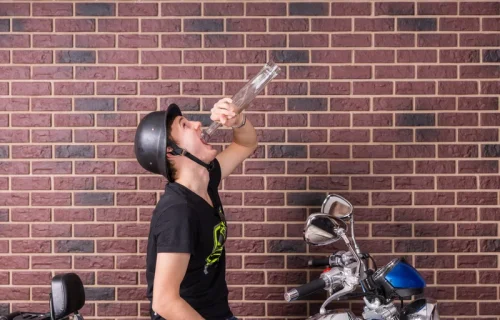- December 1, 2020
- Posted by: Visa Imigration
- Category: Sober living

This topic encourages members to spend time outdoors, organizing group outings or discussing simple ways to connect with nature in daily life. Regret over past mistakes can be overwhelming and prevent progress in recovery. This topic discusses strategies for accepting past choices, learning from them, and focusing on building a brighter future. Substance use can damage trust within relationships, making it a crucial focus in recovery.

More Great Game Ideas You’ll Love
- Behavioral activation involves identifying and engaging in positive behavior.
- Zainab is a skilled member of the ChoicePoint team of medical content writers.
Some clients may present with reluctance to participate in the different forms of group therapy during their treatment program. Individual therapy provides clients with one-on-one time with a trained Counselor which can feel less overwhelming and more personal than a group setting. When a client shares their hesitations with you about group therapy, there are numerous benefits that you can discuss with them. In this post, I highlight 50 Substance Abuse Group Therapy Activities for Recovery that you can use with your clients. This article explores 50 substance abuse group activities designed to empower individuals in their recovery journey. From self-care practices to communication exercises, these activities encourage positive change, help build essential skills, and strengthen support networks.
- Role-playing scenarios allow individuals to rehearse responses to triggering situations in a supportive environment.
- Learning to cook will not only help you improve your nutrition, but it may also be an activity that you genuinely enjoy.
- Positive affirmations help build self-esteem and resilience by reinforcing positive beliefs.
- Sharing these letters in a group setting can lead to powerful discussions and emotional breakthroughs.
Looking For Addiction Help?
Group therapy is an essential part of addiction recovery, providing a safe space for individuals to share their experiences, gain support from peers, and develop healthier coping strategies. While traditional talk therapy plays a vital role, experiential activities for group therapy offer a dynamic way to engage participants on a deeper, emotional level. These hands-on exercises help individuals explore their feelings, build trust, and gain insight into their recovery journey. It is crucial to offer meaningful and entertaining recovery group activities that would help clients develop trusting relationships with other members of the recovery group. By incorporating these activities into recovery group sessions, facilitators can create a supportive and dynamic environment that promotes healing, connection, and personal growth. Substance abuse recovery is a challenging journey that requires both personal and communal support.

Goal-Setting And Achievement Challenges

Substance use is often linked with other harmful habits, which can activities for recovery groups hinder recovery. This topic helps members identify these habits and work to replace them with healthier ones. Recognizing and changing these behaviors supports a more positive, sustainable recovery journey. Personal triggers are people, places, or situations that increase the urge to use substances. This discussion aims to help members identify their unique triggers and find strategies to manage or avoid them. Recognizing triggers is crucial to prevent relapse and maintain recovery.
- By sharing their stories in a structured setting, participants can reframe their experiences, identify patterns, and craft new, empowering narratives about their lives.
- When a client shares their hesitations with you about group therapy, there are numerous benefits that you can discuss with them.
- Emotional awareness is essential for effective self-management in recovery.
- Music therapy is a powerful tool in recovery, as it allows individuals to process emotions through sound.
- Much like journaling, doing some form of stream-of-consciousness writing can greatly help people with processing thoughts that may be troubling them.
- Group reflection promotes self-awareness and emotional regulation, as participants learn from one another’s experiences and lean on each other for support.
The act of putting pen to paper (or fingers to keyboard) can be cathartic, helping to process complex emotions and celebrate milestones along the way. Relapse is a reality for many people in recovery, and discussing relapse openly can help demystify the fear surrounding it. Talking about early recovery group topics like relapse prevention strategies, how to bounce back from setbacks, and creating a relapse prevention plan can empower individuals to stay on track. Discussing how to build and maintain a strong support system is a practical addiction recovery group idea that can help participants identify supportive friends, family members, or peers. Groups can share their experiences of who has been there for them and how to strengthen those connections.
- This exercise demonstrates the importance of sharing your feelings so you don’t confuse your loved ones.
- Recovery isn’t just about healing the mind; it’s about rejuvenating the body as well.
- This can include learning to cope with uncomfortable emotions and situations.
- In this post, I highlight 50 Substance Abuse Group Therapy Activities for Recovery that you can use with your clients.
- From creative expression to trust-building exercises, these experiential therapy activities can unlock deeper layers of healing and encourage long-lasting recovery.
Positive Affirmations And Compassion Box
Provide journal prompts to help members explore their thoughts and feelings, enhancing their self-awareness and offering a therapeutic space for introspection. In this open discussion, members discuss the importance of forgiving themselves and others, allowing them to let go of resentment and cultivate a supportive, forward-focused mindset. Pairing members to practice active listening allows them to repeat and respond with empathy, strengthening mutual understanding and reinforcing the group’s supportive environment. Through role-playing exercises, members are encouraged to see situations from others’ perspectives, which fosters compassion for themselves and others, enhancing social bonds within the group. Habits are significant in daily behavior and can either support or hinder recovery.

Role-playing is an effective way to help group members practice handling any tough situations that may arise during treatment, such as making apologies and amends to family members. Participants can share how they are practicing self-care to encourage and inspire their peers. There are numerous benefits to group therapy and peer support meetings that aren’t available in a one-on-one setting.




